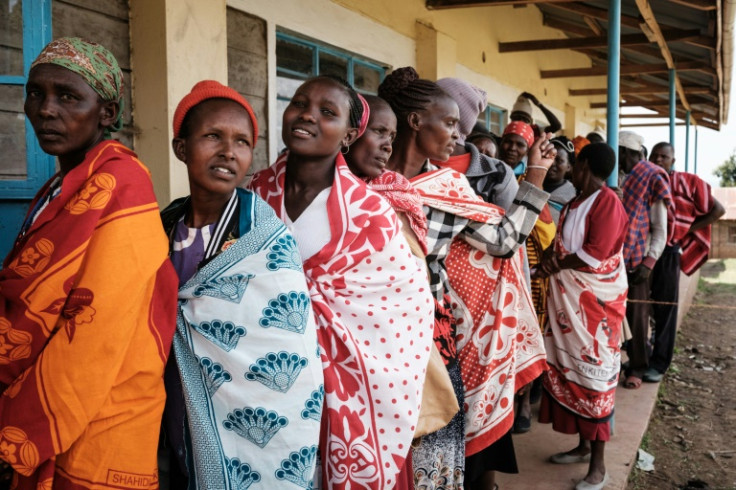
Kenya is facing a deeply troubling crisis as femicide rates soar, leading human rights groups to declare the situation a national emergency.
Since the commencement of the year, one in four women has lost their lives to violence, prompting allegations of governmental inaction.
Femicide, defined as the intentional killing of women because of their gender, has escalated at an alarming rate, shedding light on the urgent need for comprehensive action to address the root causes and protect women from violence.
Rights groups operating in Kenya have sounded the alarm, pointing to the increasing number of femicide cases reported across the country.
"This is a national crisis – we are not doing enough as a country to protect women," said Audrey Mugeni, co-founder of Femicide Count Kenya, a non-governmental organisation (NGO) that tracks the annual count of women killed across the nation.
In the preceding year, Femicide Count Kenya documented 152 killings, marking the highest figure in the past five years. Representatives from the non-profit, which registers solely reported cases, assert that the genuine number of killings is probably significantly greater.
The crisis highlights not only the immediate threat to women's lives but also underscores broader issues related to gender-based violence, inequality, and inadequate legal frameworks.
Two cases of femicide have drawn public attention, notably the killing of 26-year-old Starlet Wahu on 4 January.
She was stabbed by an individual alleged to be associated with a criminal network, whose members engage in violent extortion and rape against women targeted through dating sites.
Merely a fortnight after the discovery of Wahu's remains, another woman fell victim to a harrowing crime. She was drugged and dismembered by a man she had arranged to meet in a rented flat, with her body parts callously discarded in plastic bags.
A 2022 national survey revealed that more than one in three women in Kenya have reported experiencing physical violence in their lifetime.
Despite the country possessing robust laws and policies against gender-based violence, rights groups argue that the implementation of these measures falls short.
Audrey Mugeni emphasised the importance of heeding women when they report facing violence, stating: "Femicides don't just happen – there's usually a series of events that occurs before it culminates in a killing – so we need to pay more attention to that."
Since its establishment in 2019, Femicide Count Kenya has documented incidents of women being killed through various brutal means, including stabbing, beating, mutilation, strangling, and even being doused in fuel and set on fire. Shockingly, the majority of the victims were aged between 21 and 30.
The reasons behind this surge are complex and multifaceted, rooted in societal norms, economic disparities, and a lack of effective legal mechanisms to address violence against women.
Rights groups argue that femicide is often intertwined with issues such as domestic violence, discrimination, and economic disparities.
Women in Kenya frequently face hurdles in reporting abuse, and the lack of adequate support systems exacerbates the vulnerability of those subjected to violence.
The societal stigma surrounding domestic violence further compounds the challenges, making it difficult for victims to come forward and seek help.
The Kenyan government is under increasing pressure to take swift and decisive action to address the femicide crisis.
Advocates are calling for the implementation of stronger legal frameworks to prosecute perpetrators and protect victims.
Additionally, there is a growing demand for increased resources and support for organisations working on the front lines to assist victims of gender-based violence.
The femicide crisis in Kenya highlights a broader global issue, with gender-based violence affecting women in various parts of the world.
The urgency to address these challenges has prompted a renewed commitment to achieving gender equality and protecting women from violence on an international scale.
As Kenyan authorities grapple with the femicide crisis, the effectiveness of their response will be closely scrutinised.
The collaboration between government bodies, civil society, and the international community will play a pivotal role in shaping a future where women can live free from the fear of violence and where femicide is eradicated as a national scourge.






